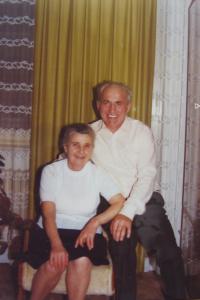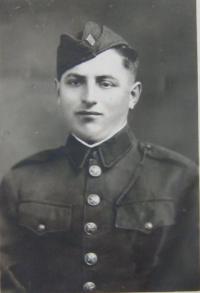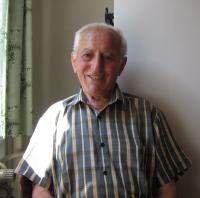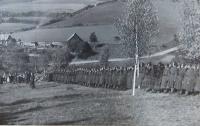You simply had to go to war – regardless of whether you wanted it or not.

Download image
Jan Nikerle was born in 1922 in the village of Gerlachov in the foothills of the High Tatra Mountains in Slovakia. In the autumn of 1944, he was forced to enroll in the Slovak army together with other cadets. After their training, the original mission was to fight in Ukraine. However, the Slovak units in Ukraine were notoriously prone to frequent desertions to the Soviet army. Therefore, he was eventually sent to Poland and stationed in Sanok, where he served in a guard unit until the Slovak national uprising. In the wake of the uprising, the Slovak army disintegrated and Jan joined the Czechoslovak extraterritorial army corps. The Czechoslovak army fought over Slovak territory and Jan served as a logistical officer for the skiing machine-gun battalion. He participated in the battles for Liptovský Mikuláš and Malá and Velká Fatra. He continued his army service even after the end of the war till 1946. After the termination of his army service, he continued in civilian life as a driver. He first worked for a hospital and later at construction works. In 1986 he and his wife Marie moved to their son to Zábřeh na Moravě, where he lives till today.




